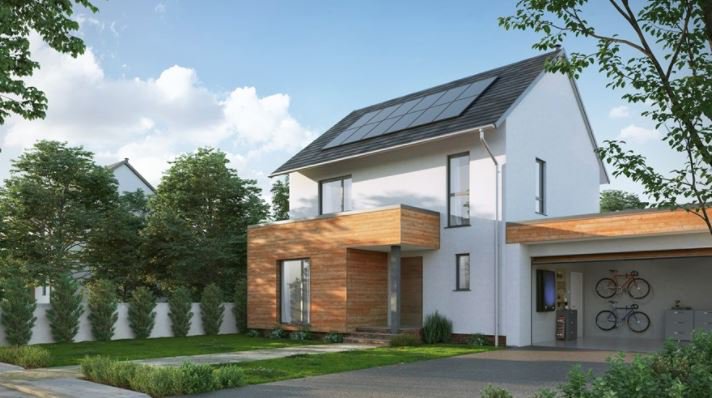It might sound like science fiction, but your home could soon be generating its own electricity.
The ‘good life’ used to be all about growing your own vegetables, but in the brave new world of the 21st century, even
self-sufficiency has had an upgrade.
Although the advent of putting solar panels on the roof of a house is nothing new, the latest advances in
smart technology mean your home could soon become a ‘mini renewable power station’.
‘Combining solar panels, a home battery and an electric vehicle (EV) enables consumers to generate and store energy throughout the year,’ explains Smart Energy GB’s head of public affairs, Fflur Lawton.
‘By adding a smart meter, which accurately monitors the energy you’re using and tells you how much it costs in near real-time, you could also access new time of use tariffs. These can see you paid to use energy when there is an excess supply of energy, enabling you to charge your EV or home battery for free.’
A recent report by the energy platform Kaluza estimated that there could be 2m smart heating systems and 11m EV chargers in UK homes by 2030, and that households could save up to £400 a year by letting artificial
intelligence (AI) drive how energy is used.
There have been a number of smallscale schemes to test the concept of the smart home energy system in recent
years. One of these is a housing estate in Parc Eirin, Tonyrefail, which is being developed by Sero Homes with
Pobl Group and Tirion Homes.
Sero has developed an advanced solution for heat, hot water, electricity and vehicle charging in the homes on
the estate, which is all linked to its Sero Life platform.
The estate has received funding from the Welsh Government and the UK Government and Western Power Distribution is running a trial of three phase power cables into the homes, which can carry more power than
traditional cables.
Peter White, Western Power Distribution’s lead for low carbon technologies, says the homes on the estate have been fitted with heat pumps, battery storage and solar panels.
‘They all talk to a computer, which is hooked up to the smart meter, so it knows what tariff is being supplied to the house. The computer looks at what tomorrow’s weather is going to be and it’s got artificial intelligence so it’s
learning, day by day.
‘So, if you always use the washing machine on a Tuesday, it will look ahead and look to pull use the cheapest electricity rate. It’s designed to manage your energy consumption and keep your bills, as low as possible.
‘For example, if you have a typical gas-fired four bed house with an EPC rating of D or E, you could be paying about £190 on electricity a year. They are looking to drop that down to £90 for your first bill in a Sero Home. And after a year of the computer learning how you live, it could drop even further to £55. That’s a substantial saving to a household.’
Mr White says there has already been huge public interest in these smart energy homes.
‘I think the general public is actually going to wake up and realise that the goalposts have moved, and it’s in their best interests to go down this road,’ he tells Air Quality News.
Read more: Air Quality News




